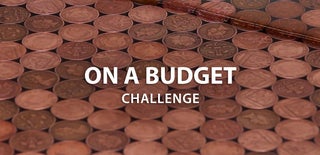Introduction: Budget Fighter Jet Fleet
Do you need a portable fleet of fighter jets to protect yourself??
Do you not have the $ for model airplanes???
Are you constantly being annoyed by a world-class dipwad??
Well, I have a solution to that.
Behold the Budget Fighter Jet Fleet!
It's perfect for those who don't have time to mount an auto Nerf sentry gun above their workspace/territory ,or those who want to venture into the exciting world of origami!
Also, if you DO want to build that sentry gun, check out this instructable
https://www.instructables.com/Nerf-Vulcan-Sentry-Gun/
The plane is also super low cost, starting at around 3 cents per plane and going higher with modifications and such.
Let's get started.
Note- I am not responsible for any damages/injuries these planes may have caused.
note's note- this was made as a joke and is not actually intended to protect you from dangers except for maybe those annoying dipwads I told you about
note's note's note- if you are asking for help, DO NOT immediately assume that I am an origami god and that I can magically solve your problems.
I will try to help you as best as I can, but as I am human, I sometimes will fail.
Supplies
- However many sheets of A4 printer paper as you would like ( that will be the # of planes you make)
- Mini paper clips
- Some patience!
Step 1: Background Knowledge
Before we begin, here's some background knowledge that is handy (at least for me!) when folding origami.
First off, what does origami mean??? Origami-according to Oxford Languages , defines it as : The Japanese art of folding paper into decorative shapes and figures. No cuts, no rips, and certainly no tape. Just fold that 1 piece of paper into things as simple as picture 1, or as complex as picture 2. Yes, those are all 1 sheet of paper!
Second off, it's okay if you get stuck! If you get stuck, that means that you are using your brain more than if you were to just fold a easy model that you already know how . Try new things and challenge yourself!
Third, it helps if you remember 3 things when folding- 1, Make sharp creases! Sharp creases will be easier to see and will look better when done. 2, Line folds up! Lining things up can be the difference between a floppy model and a crisp, clean model. 3rd thing- always fold on a flat surface! A flat surface is 90% of the time easier to fold on than a rough surface or in the air.
__________________________________Conclusion______________________________
I could spend probably a entire book yammering on and on about persistence and how to and all that jazz, but then you'd never get to fold what you came for.
So, I'm ending the intro here. Now go fold that paper!
---Bobthemaker
Step 2: The Diagonals
Fold down the diagonal like on the first picture. Then, unfold and repeat on the right side. Make sure to be accurate!
Unfold it all. Your paper should now look like the 3rd picture
Step 3: Vertical Lines!
Now fold your paper the "hot-dog" way-vertically and unfold. Picture 1 shows this completed. Then fold it the "hamburger" way THROUGH THE INTERSECTION of the "x" shape you made in the last step. Picture 2 shows this step done. Your paper should now look like Picture 3
Step 4: Collapsing !
Open the flap on the right side and push in the flap like in picture 1 . Picture 2 shows it flattened . Repeat on the other side, like in picture 3 , and in picture 4 , it's all done! Whew, that was a big step! Onto the next one!
Step 5: Tail Flaps
First turn the paper upside down. ( picture 3) Then fold the excess paper up( picture 2) and then down, (picture 3) aligning it with the bottom of the triangle shape.
Step 6: Tail Flaps Part 2
Remember how we made that triangle in step 3? We're doing it again! First fold on the diagonal on the rectangular section and unfold on both sides. ( picture 1). Then, collapse the ends like in step 3 into a triangle (picture 2) and repeat on the other side. (picture 3.) Now we're done with that step!
Step 7: Rear Wings
First, flip over the paper. Then fold over 1 flap and fold, so that the slanted edge is touching the center crease.( picture 1 ) Then fold the edge back out (picture 2 )and repeat on the other side. (picture 3. ).
Step 8: Cockpit
First, fold the right flap inward. (picture 1)Then fold it back on the center crease.(picture 2) Repeat on the other side. When done, your paper should look like picture 3.
Step 9: Taking Shape.
Fold your airplane in half. It should look somewhat like picture 1. Add the paper clip to hold it together somewhere near the front. (picture 2). Then fold the wings down (picture 3) and repeat on the other side ( picture 4. ) Your airplane is almost complete!
Step 10: Wing Details.
First, fold the larger wing's tips inward like in picture 1. The circled points are the folded points. Then, fold up the first layer of flaps in the back to create the tail flaps. (Picture 2 shows this circled in blue). Now, you are done!
Step 11: Now What??
Now you have your very own Budget Fighter Jet! From here, you have 2 options. A, you could hone your skills of airplane-making and fold a mega fleet of these,* or B, you could learn how to fly this airplane! Simply hold it by the paper clip , throw it, and watch it soar! If it falls out of the sky like a rock, adjust the paper clip and try again.
If you have any questions/concerns,put it in the comments and I'll see you in my next Instructable!
*If you do plan on making a mega fleet, keep in mind you will need a mega hangar to store those planes. A empty Amazon.com box works nicely.

Participated in the
On a Budget Challenge













